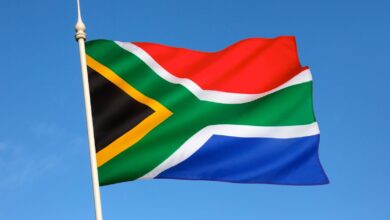Holders of Caribbean Passport Might Lose Visa-Free Access to Europe

Caribbean passport holders face the threat of losing visa-free access to the EU. If this happens, the economy of the Caribbean countries administering citizenship-by-investment programs may suffer greatly.
High demand for passports of the five Caribbean states that offer economic citizenship opportunities has put the EU and the USA on alert. According to the media, the European Union intends to tighten entry rules for those countries that sell citizenship to foreigners. This might render acquiring a ‘golden passport’ pointless for many people, which would cause economic problems in the Caribbean.
A second passport for $100,000
Citizenship-by-investment (CBI) programs bring St Kitts and Nevis, Dominica, Antigua and Barbuda, Grenada, and St Lucia US$ 579 million per year. St Kitts was the first country to offer its citizenship to foreign investors in 1984, only a year after it had become independent from Great Britain. At that time, it was seen as an opportunity to overcome dependence on sugar exports.
St Lucia and Antigua charge US$ 100,000 for their passports and this is the lowest price. St Kitts charges the highest price and it is US$ 250,000. Passports of these countries are in high demand because they give the holders visa-free access to the EU. Besides, the Caribbean countries also offer some serious tax incentives. According to the EU officials, the five countries have granted citizenship to at least 88,000 foreigners. Most of the foreigners are citizens of China, Russia, Nigeria, and other countries that do not have visa-free agreements with the EU.
In addition to these groups of people, citizens of the USA are showing strong interest in Caribbean passports. They can enter the EU without visas and they have to pay taxes to the US budget wherever they earn money but their interest in Caribbean passports grew during the pandemic and it continues growing against the background of global geopolitical instability.
According to CBI program promoters, national elections in the USA always walk hand in hand with a surge of interest in CBI. Some people expect civil unrest regardless of who wins the election. For this reason, they want to hedge the risks and obtain an ‘insurance policy’ that will allow them to retreat to the Caribbean and weather the storm under the bright sun.
Antigua and Barbuda is the only country that publishes lists of economic citizens. According to the official statistics, the number of Americans buying citizenship of the country has tripled since 2019. Consulting agencies working with CBI programs confirm that the number of American applicants for foreign citizenship has been rocketing recently. If you would like to see a guide on foreign citizenship and a second passport, please follow the link.
Under threat
The relatively low price of Caribbean passports and the ease of their acquisition set the EU official thinking about tightening the entry rules for citizens of the countries selling their passports to foreigners. A recent report from the OECD says that CBI programs can be used by criminals for money laundering and other fraudulent purposes.
A short time ago, representatives of the five Caribbean states had a meeting with the EU and US officials to discuss the security issues related to their ‘golden passports’. They officially denied the opportunity to apply for second passports to Russian and Belarusians in response to Russian invasion in Ukraine. Nevertheless, Great Britain terminated the visa-free agreement with Dominica in July 2023 (and previously with Vanuatu) referring to security concerns. At that time, London also announced that it was going to cancel the visa-free agreements with St. Lucia, Antigua and Barbuda, Grenada, and St. Kitts and Nevis as well.
M.C. Emmanuelle, director of the St Lucian CBI program said that the country’s immigration authorities had to ‘put each application [for citizenship] under a microscope’. Today, CBI Units in all five countries know perfectly well that their due diligence procedures have to be faultless. A small mistake or an overlooked fact can do irreparable damage. The number of application rejection is small, not because the immigration officers are relaxed. Rather applicants often give up halfway through because they have to overcome too many obstacles.
An economic catastrophe
If the EU carries out its threat, the situation will change dramatically. The estimated income that the CBI program generated in St Kitts in 2023 was around US$ 192 million. This is 51% of the total revenue of the country. The Dominican CBI program brings 55% of the total national revenues and the money is used to build an international airport in the country and dredge river beds. In Grenada, the money is used for social programs and for financing construction of a prison.
All five countries are small. They have few natural resources and they heavily depend on tourism. CBI programs are lifebuoys for them.
If Caribbean passport holders lose the right to enter the EU without visas, the economies of five countries in the region are going to be ruined. After all, who would want to buy a passport that gives visa-free access to Latin America and a few African states?
European ‘golden visa’ programs
Ironically, some EU states have their own ‘golden visa’ programs that allow foreigners to buy second citizenship. These programs are different from the Caribbean CBI programs in two important ways, however. First, they cost considerably more. Second, a foreign investor can become a legal resident of the EU as fast (or almost as fast) as he/ she can become a Caribbean citizen. To become a full-fledged EU citizen, the foreigner has to hold the ‘golden visa’ for five years or a bit more. At the same time, the essence is the same: buy a piece of real estate in the country or invest in some other assets and you can eventually obtain a second passport.
Brussels is combating ‘golden visa’ programs too. It calls on the countries administering such programs to close them. Great Britain and Ireland have already done so voluntarily and Cyprus has been forced to close its ‘golden visa’ program.
Other countries have not followed suit so far, however. Malta is currently defending its right to sell citizenship in court. Greece has raised the required investment amount but only if foreigners buy property in well-developed regions of the country. Portugal has made it impossible to qualify for a ‘golden visa’ by purchasing property but several other investment options are still available to foreigners looking for legal residence in Portugal. Spain is thinking of changing the program conditions or maybe closing it but it has not made up its mind thus far. We will have to wait and see how the situation in the investment immigration industry is going to develop.



